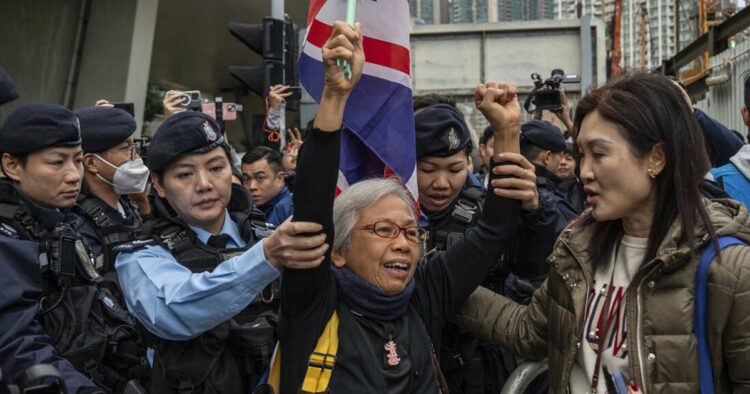In a significant development within Hong Kong’s closely monitored national security trial, the court delivered a notable setback on Friday by refusing to dismiss the sedition charges against Jimmy Lai, the founder of the now-closed tabloid, Apple Daily.
A legal team for pro-democracy tycoon Lai had appealed in the Hong Kong Court to drop the charges arguing that the prosecution failed to take action within six months of the offence which is beyond the time limit stipulated by Hong Kong law.
Lai’s lawyer, Robert Pang pointed out that he was charged on December 28, 2021, four days after the deadline. However, the court ruled that the prosecution of the sedition charge against the defendants was not time-barred.
Notably, Jimmy Lai and Apple Daily had allegedly published a total of 161 seditious articles between April 1, 2019, and June 24, 2021, until the publication was ceased, following a police raid, a freeze on its assets, and arrests of former staff crippled its operations.
In addition to the accusation of sedition, Lai is confronted with Two charges of conspiring to collaborate with foreign entities. Though Lai had pleaded not guilty to all charges, if convicted, he could potentially be sentenced to life imprisonment.
The national security trial of Jimmy Lai had begun on Monday in Hong Kong. He has been in jail since December 2020, initially in pre-trial custody and subsequently due to brief prison terms related to various charges concerning the administration of Apple Daily.
Lai is a consistent supporter of democracy and a strong critic of the Chinese government under President Xi Jinping and its meddling in Hong Kong. His political views were deeply influenced by Beijing’s crackdown on 1989 pro-democracy protests in Tiananmen Square. He openly criticized China’s policies, censorship, repression of freedom of speech, and the Tiananmen massacre, which irritated Beijing.
Lai advocates for Western nations to impose sanctions on Hong Kong and China. Prosecutors claim that such calls violated the national security law under a colonial-era sedition law.
These legal proceedings stand out as some of the most prominent cases under the extensive national security law enacted by Beijing in 2020 following the widespread and occasionally tumultuous pro-democracy demonstrations in 2019.
While Beijing and Hong Kong officials assert that the law reinstated stability and addressed vulnerabilities, rights organizations, media entities, and detractors argue that the law has reshaped the legal framework and significantly diminished fundamental civil and political rights in Hong Kong.
The trial is being closely watched as it is not just a trial of press freedom but also a test for judicial independence in Hong Kong. Furthermore, it will also showcase how far China is willing to go to curb press freedom and an individual or institution’s freedom of expression. It also highlights the impact of the Beijing-imposed national security law on the once-outspoken Hong Kong.

















Comments